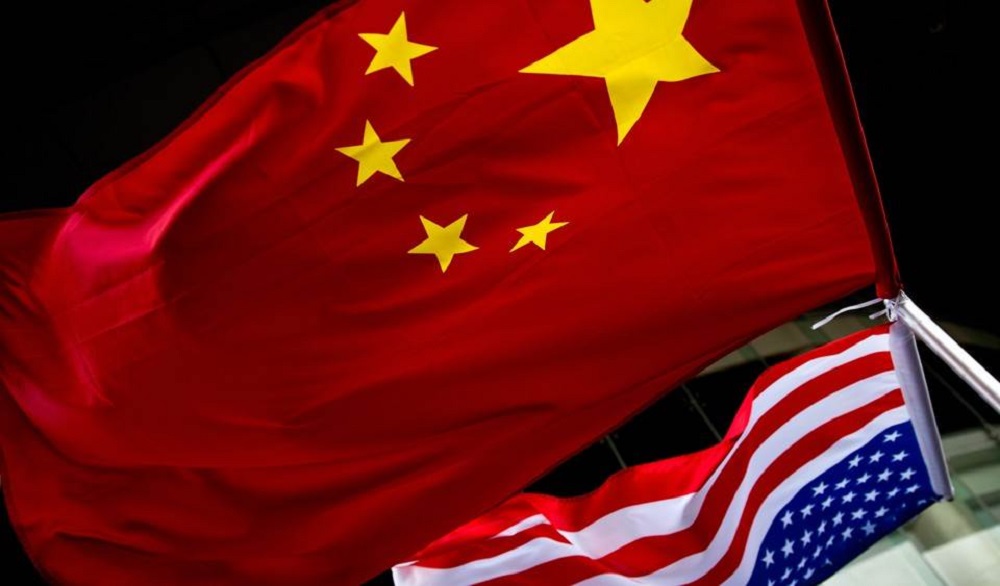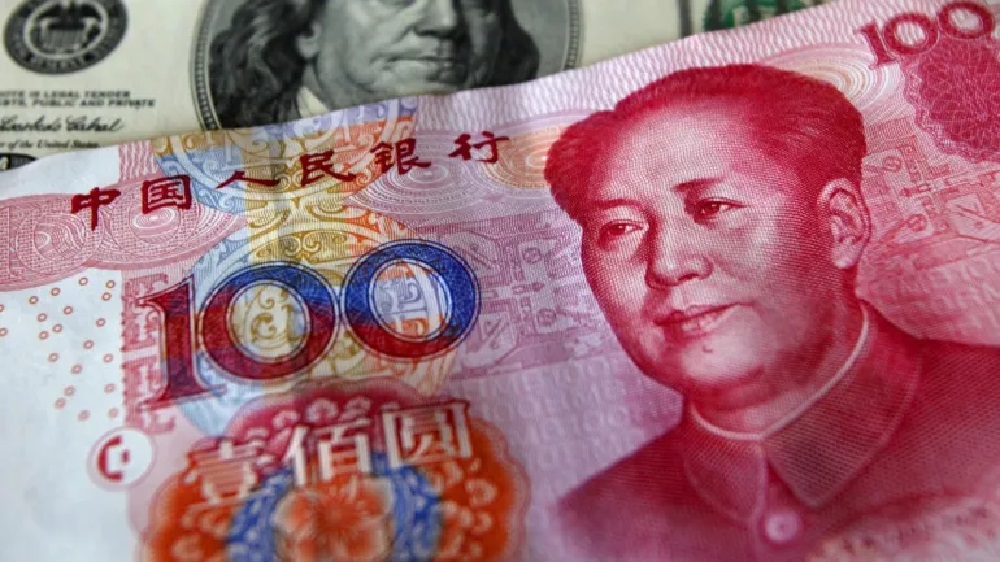China Vows to Resist U.S. Tariff Pressure as Global Trade War Escalates
Beijing rejects Trump’s tariff threats as the EU, Asia, and global markets scramble to contain fallout from sweeping U.S. trade measures.

Watan-China has vowed not to yield to what it called “blackmail” from the United States, as there were no signs by Tuesday of easing in the global trade war sparked by sweeping tariffs imposed by President Donald Trump—even as stock markets began to stabilize.
This comes after Trump threatened to raise tariffs on imports from the world’s second-largest economy to over 100% starting Wednesday, in response to Beijing’s decision to impose counter-tariffs following U.S. measures announced last week.
China’s firm and swift response contrasted with the more cautious approach taken by other Asian nations. Meanwhile, the European Union is still consulting with its member states on how forcefully to respond to Trump’s tariffs without causing further harm to consumers and exporters within the bloc.
China’s Ministry of Commerce said :“The U.S. threat to escalate tariffs against China is a mistake on top of a mistake. It again reveals the blackmailing nature of the U.S. side.” “If the U.S. insists on this path, China will fight to the end.”

Global Markets React as EU, Asia Push Back Against Trump Tariffs
In a phone call with Chinese Premier Li Qiang, European Commission President Ursula von der Leyen urged China to support a negotiated solution and emphasized the need to uphold a fair and balanced global trade system.
Von der Leyen’s office said they also discussed creating a mechanism to track potential trade distortions caused by the tariffs, amid EU concerns that China could reroute cheap exports to Europe instead of the U.S.
Chinese manufacturers, facing reduced profits, are rushing to draw up plans for opening new factories abroad in response to the tariff news. Citi Group lowered its forecast for China’s 2025 GDP growth from 4.7% to 4.2%, citing increasing external risks.
The EU has proposed countermeasures in response to Trump’s tariffs, which have affected dozens of countries, dragged down financial markets, and raised fears of a global recession.After a turbulent few days, stock markets began to stabilize, prompting business leaders—including some close to Trump—to urge the president to reconsider.
European stocks rebounded in early trading, recovering from 14-month lows after four days of heavy selling. Oil prices also climbed following sharp drops driven by panic selling.
U.S. stock futures rose slightly, though markets are still reeling from trillions of dollars in losses since last week. Investors are now eagerly awaiting any sign that the U.S. might be open to negotiations.
Japan’s Nikkei index closed up 6% on Tuesday, while Chinese blue-chip stocks rose 1%, clawing back part of Monday’s 7% plunge.
However, Indonesian markets were hit hard, with stocks plunging 9% as trading resumed after a long holiday. The Indonesian central bank vowed to intervene, joining global efforts to contain the fallout.
Trump defended the tariffs, which start at a minimum of 10% on all imports to the U.S., with targeted rates of up to 50% on certain economies. He argued that the measures will revitalize the American industrial base, which he says has been hollowed out by decades of free trade.

European Countermeasures
A document seen by Reuters revealed that the European Commission is proposing 25% retaliatory tariffs on a list of U.S. goods, including soybeans, nuts, and sausages, while excluding others like whiskey.
Officials indicated a willingness to negotiate a “zero-for-zero” deal with the Trump administration.
The 27-member EU has been hit particularly hard by U.S. tariffs on cars and metals and faces 20% tariffs on other goods starting Wednesday. Trump has also threatened to impose duties on alcoholic beverages imported from the EU.
Vietnam, a major low-cost manufacturing hub, has requested a 45-day delay in tariff enforcement, offering to buy more U.S. goods to balance trade.
With the Indonesian rupiah hitting a record low, Jakarta announced incentives for U.S. imports, including lower taxes on electronics and steel, in an effort to curry favor with the White House.
Southeast Asia’s largest economy is also sending a delegation to Washington next week to seek a deal that would ease the burden of 32% tariffs set to take effect Wednesday.
South Korea is reportedly studying ways to increase U.S. imports in preparation for trade talks with Washington.
According to Politico, U.S. Treasury Secretary Scott Besant met with Trump in Florida on Sunday to encourage him to focus on striking trade deals with key partners to calm markets and give clearer direction to U.S. strategy.
Elon Musk, the world’s richest man and advocate for government efficiency, also called for eliminating tariffs between the U.S. and Europe. The Washington Post reported that Musk personally urged Trump to cancel the tariffs.






